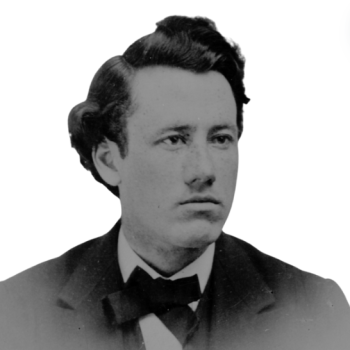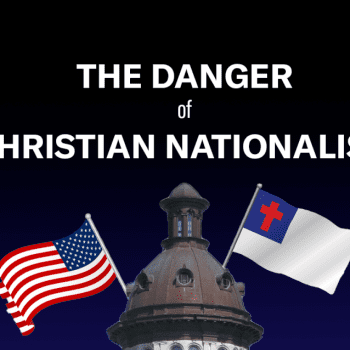Editors' Note: This article is part of the Patheos Public Square on the Future of Faith in America: Judaism. Read other perspectives here.
In October 2013, Pew Research released a study entitled "A Portrait of Jewish Americans." It reported on the most extensive survey of American Jewry since 2001. The publication sparked an outpouring of anxiety and pessimism. For example, the Washington Jewish Week's headline read "Dismal Numbers: Pew's Portrait of Jewish Americans is a study in dark colors." The study confirmed widely feared trends like extensive intermarriage within the Jewish community: 58 percent of Jews who got married within the last eight years chose to wed non-Jews. The Pew report also confirmed that younger Jews are significantly less connected to Jewish religious identity than their older counterparts.
To paraphrase Mark Twain, though, the reports of our demise were greatly exaggerated. Existential anxiety often leads us to unnecessarily dark conclusions. American Jews today live in the shadows of the Holocaust, the destruction of European Jewry, and the deadly political conflicts of our Jewish counterparts in Israel, and these dark specters can nudge us toward grim assumptions.
Much of the reporting and discussion of the Pew study therefore missed some positive news and some exciting opportunities for the Jewish community today. For example, 94 percent of Jews are proud of being Jewish, 80 percent say it's an important part of their lives, and 75 percent have a strong sense of belonging to the Jewish people. These numbers indicate a remarkable, stable, and possibly even growing sense of secure Jewish identification, experienced by few other ethnic or religious communities within America. Indeed, Pew's more recent report, "America's Changing Religious Landscape," shows the Jewish population holding steady or growing slightly as a percentage of America.
I believe the most exciting opportunity and challenge relates to pieces of data from the study that many people read as "dismal." Specifically, survey respondents indicated a significantly lower level of religious Jewish identification than ever before. Twenty-eight percent said that they do not believe in God. Twenty-two percent said that they do not identify with Judaism as a religion, even though they identify as Jews for presumably cultural or ethnic reasons. This departure from traditional religious definition has grown significantly since the population studies of decades past. The trend well may represent the future.
Clearly the synagogues, rabbis, educators, and other "religious" leaders are failing to reach this growing group of Jews, skewed toward younger adults. The upcoming generation believes that our traditional religious institutions and ideas do not speak to them. They perceive that our prayers, obscure rituals, celebrations, Torah study, and concepts do not address their concerns or convictions. They likely perceive that Jewish communal life doesn't fully welcome the growing diversity of ethnic backgrounds, sexual orientations, family structure, and theological outlooks reflected within our households.
The data provide a very important wake-up call. It's time that synagogue leaders, lay people, rabbis, and educators begin to ask more and listen better. What convictions matter to this growing group, which well may represent the future of Jewish life? What beliefs give meaning to their lives?
Although they may reject a belief in God, perhaps they share some of the following convictions, frequently addressed within Judaism. I paraphrase slightly from Rabbi Laura Duhan Kaplan for some of these possible statements of belief:
• Perhaps they sense an infinitely precious spark within the unique life and character of each individual human being, which some might call a reflection of the Divine Image.
• Perhaps they feel compelled by an imperative to move humanity toward greater justice and compassion, an imperative that many call a sense of mitzvah, or divine commandment.
• Perhaps they feel held by a great heart of compassion, which some might call a "connection with God" and others might choose to name differently.
• Perhaps they discern that synchronicities in their lives are glimpses into a prepared destiny, much like footsteps placed before them by the guiding hand of a creator.




